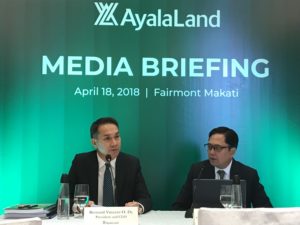The government has advanced its target to give all households nationwide access to electricity by two years to 2020, and electric cooperatives may have to give way to others if they are not up to the task in their areas, according to Energy Secretary Alfonso Cusi.
In an interview yesterday, Cusi said the penetration of electricity services was about 90 percent of households in 2015. At that time, the Philippine Statistics Authority pegged the number of households at a total of 22.98 million with 100.57 million persons.
This means there were about 10 million people or 2.3 million households that have no access to electricity largely because their locations are far from the power grid and are considered commercially unviable for investment on distribution networks.
“Since then and when we [the Duterte administration] came in, the improvement was just one percentage point at 91 percent electrification,” Cusi said.
“This is too slow and we want to do all things possible to help achieve our target of universal electrification by 2020,” he added.
The energy chief said this would include allowing private firms to go into the exclusive franchise areas of electric cooperatives that are unable to contribute to the goal, echoing an earlier statement attributed to President Duterte.
“The fact is, we have asked the cooperatives to submit by May 31 a master plan on how they are going to achieve this within their areas,” Cusi said.
“If the plans show that electrification is unviable for a cooperative, we are open to let other parties (come in),” he said. “We will ask them to waive (their rights). They should face competition.”
The government, through the National Electrification Administration (NEA), oversees 121 power cooperatives nationwide—which are grouped into various associations.
Last week, the Philippine Rural Electric Cooperatives Association (Philreca), Philippine Federation of Electric Cooperatives, Philippine Association of Board of Directors of Rural Electric Cooperatives, and National Center of Electric Cooperatives Consumers appealed against “widespread misconception that power cooperatives are generally ineffective.”
Citing industry data, the groups said in a joint statement that only 8 percent out of the total 121 ECs in the Philippines were considered “problematic.”
The groups were reacting to a recent statement of the President to the Department of Energy and the Energy Regulatory Commission to advance rural electrification by allowing the entry of the private sector to give communities more options on power service providers.
They said such statement “effectively clears the way for private investors to barge into rural electrification, which for so long has been left in the wheelhouse of community-owned distribution utilities.”
Philreca president Presley de Jesus said a policy on private sector participation in rural electrification program was based on a wrong premise—“that there are nonperforming electric cooperatives that are considered barriers to total electrification.”


